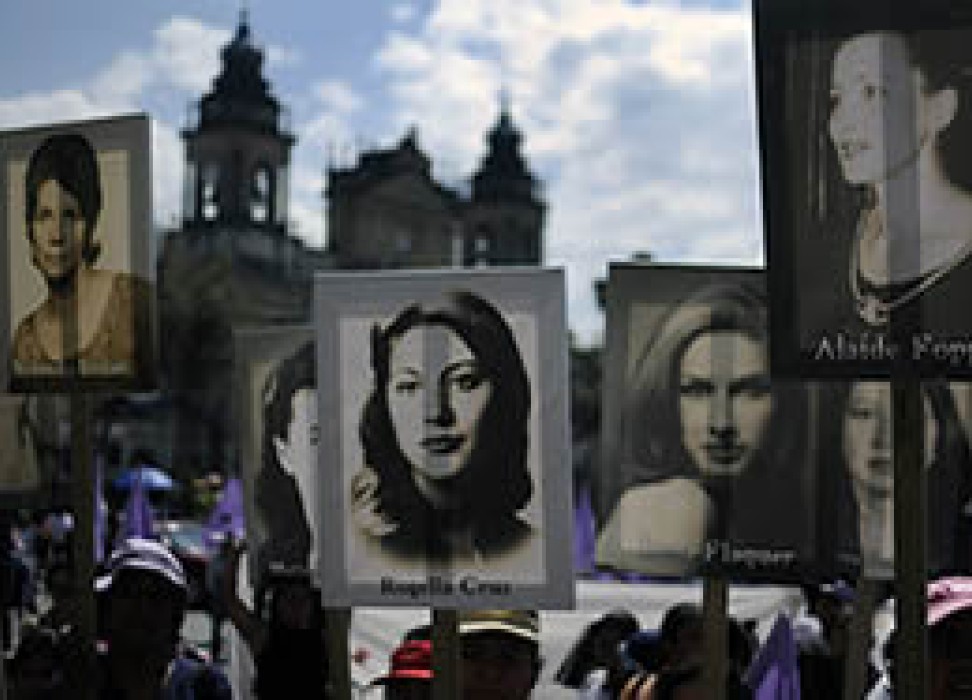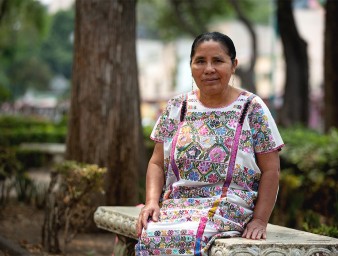Ending impunity for femicide across Latin America
25 August 2014

The Model Protocol (Modelo de protocolo latinoamericano de investigación de las muertes violentas de mujeres por razones de género (femicidio/feminicidio))
Women’s rights and gender OHCHR
The UN Human Rights Office in collaboration with UN Women has developed a Model Protocol to guide investigations and prosecutions launched in the wake of gender-based murders of women in Latin America.
“This Protocol reflects the specificities of the different countries in the region,” says Carmen Rosa Villa Quintana, from the UN Human Rights Office, “It will help States in Latin America comply with due diligence in cases of femicide and strengthen efforts aimed at ensuring all women live free from violence and discrimination.”
Reliable figures for femicide are difficult to establish but the Small Arms Survey, a research organization established by the Swiss Government, which investigates small arms and related violence, estimates that globally, more than 65,000 women and girls are murdered annually, accounting for almost a fifth of all homicides.
Increasing rates of violence against women have been reported across Latin America and the Survey says that of the 25 countries with the highest femicide rates, more than half are in the Americas. Women are more often killed by men they know well, their former partners, family members or friends, according to the Survey, which finds too, that in countries with high levels of lethal violence, women are frequently attacked by gangs and organized criminal groups, often in a general climate of indifference and impunity.
Research by the UN Human Rights Office supports these findings, identifying an increase in organized crime, human trafficking, drug trafficking and the proliferation of small arms as major reasons for the many murders of women in Latin America. These factors are compounded by structural discrimination, including inadequate legal frameworks.
The Inter-American Court and Commission have also expressed concern at the levels of violence and impunity, concluding that underlying societal beliefs about the inferiority of women have created a culture of discrimination within law enforcement and judicial institutions, resulting in negligent investigations and a lack of sanctions against perpetrators.
In response, the UN Human Rights Office and UN Women have worked together to draft a Model Protocol for the investigation of gender-related killings of women in Latin America. Drawing on a methodology developed in 2011 by the UN Human Rights Office, specifically for the investigation of femicide in El Salvador, the Protocol is for use by investigators and prosecutors across the region to ensure gender-based murders of women are exhaustively and independently investigated. Anna Coates, speaking for UN Women at the launch of the Protocol, said its central aim is to end impunity, estimated in some countries in the region at 98 percent of reported cases.
In the foreword to the Protocol, Rashida Manjoo, the UN independent expert on violence against women, acknowledges that many countries, including in Latin America have modified their criminal codes to include gender-related killings and have adopted other measures directed at eradicating gender-based violence. However, she says, impunity rather than accountability continues to be the norm in many contexts.
Significant challenges remain, she says, including: the discriminatory manner in which crimes against women and girls are dealt with; the insufficient attention given to previous complaints presented by the victims; the inadequacy of criminal investigations; and the use of mitigating circumstances to lower sentences.
The Protocol addresses many of the individual, institutional and structural factors relevant to understanding and responding to gender-related killings, Manjoo says. “The value of the Model Protocol is that it is practical. Its content draws on both the theoretical and practical experiences of a range of experts, including prosecutors, police, coroners, and judges, across Latin America, and beyond,” she says.
“It is a positive example of a collaborative effort involving regional organizations and practitioners, affirming their expertise and experience, to address and challenge impunity in the killings of women “, Manjoo says.
Several Latin American countries are already working to integrate the Protocol into their legal systems and others have expressed interest in following suit.
25 August 2014



